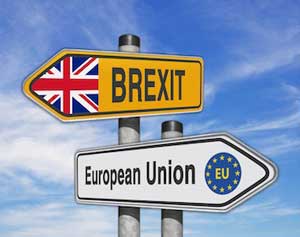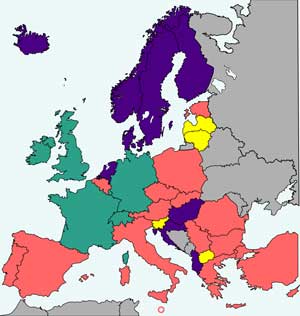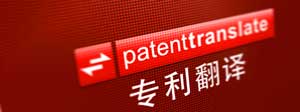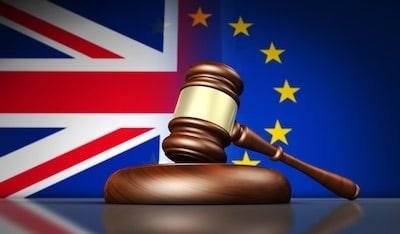Currently, the UK patent office is looking to implement a unitary patent system which would require all patents to be filed with the EPO, and grants rights across all EU member states. This, along with the voluntary London Agreement, restricts the number of languages into which patents need to be translated. However there are potential implications between the Brexit and patents filed in the UK and the EU. With the UK choosing to leave the EU, will the patent system as well as translation requirements change?
Brexit and Patents – Will the Split Affect the EU Unitary Patent System?
Britain’s exit from the EU will take place over a transitional period of two years. During this time, the UK government will negotiate with the centralized EU authorities regarding any effect on IP laws affecting trademarks, copyrights, and patents. That being said, the UK’s participation in the European Patent system is not expected to change since the European Patent Office (EPO) functions independently.
However, this is different from the Unitary Patent which would be used for protection in all the EU member states. Post-Brexit participation in the Unitary Patent system by the UK may be more complicated since it was created by EU regulation and applies to EU member states.
The UK’s split from the EU would automatically withdraw it from the Unitary Patent System – leaving some wondering if the idea of Unitary Patent would last. However, since Britain entered the system prior to leaving the EU, it may negotiate with the EPO to permanently remain within this same set of regulations.
The UK is currently planning on being a part of the system for the two year interim before fully breaking from the EU. Separate legislature or additional requirements may develop as a result of the separation, but it is more likely that the UK will keep with current EU patent laws.
Brexit and Patents – Will Brexit Affect Current Patent Translation Requirements?

For those filing with the EPO under the current London Agreement, as long as the patent is in English, French, or German, it will not have specific translation requirements. This is unlikely to change due to the fact that English remains the unifying language in a majority of EU member states. Thus it will likely remain one of 3 official languages for the EPO.
As it is expected that the UK will conform to Unitary Patent regulations, in the future translation requirements will be even less.
What is The London Agreement
Currently 21 states operate under the London Agreement which greatly reduces the translation requirements. Some states have no translation requirements (those whose official languages include English, French, or German – the official languages of the London agreement). Others may require patent translation into one of the EPO’s 3 official languages, while maintaining the right to request a translation in their national language. In the case of a patent dispute, participating states will require a full patent translation in their country’s official language.

As shown on Wikipedia: All European countries except those shaded in pink and grey have enacted some form of reduced translation requirements under the London Agreement.
Within the London Agreement, there are 8 states that require no patent translation (as their official languages include one of the London Agreement’s required languages):
- France
- Germany
- Ireland
- Liechtenstein
- Luxembourg
- Monaco
- Switzerland
- The United Kingdom
Those states without a language in common with the London Agreement/EPO have partially reduced their language requirements, and require the claims to be filed in one of their official languages if the patent is in English:
- Albania
- Croatia
- Denmark
- Finland
- Hungary
- Iceland
- Netherlands
- Norway
- Sweden
The 17 countries that are not part of the London Agreement require complete translation of patent applications in their own national language(s). These include:
- Austria
- Belgium
- Bulgaria
- Cyprus
- The Czech Republic
- Estonia
- Greece
- Italy
- Malta
- Poland
- Portugal
- Romania
- San Marino
- Serbia
- Slovakia
- Spain
- Turkey
In some cases this means multilingual translations. In Cyprus, for example, both Greek and Turkish patent translations must be submitted, and in Belgium patents must be translated into Dutch, German and French.
The unitary patent system would ideally rid patent filers of all these translation requirements.
Brexit and Patents -The Unitary Patent System and Patent Translation Requirements

This means, in the future, it would ideally get rid of most translation requirements.
How Will Translation Requirements Change Under the Unitary Patent System
Before all translation requirements are gone, the EU will undergo a transitional period in which some translations will still be required. These translation requirements will depend on the language of the patent.
Patents in English, French, or German – for a transitional period, patents in French or German will need to be translated to English, and those in English will need to be translated to one of the EU official languages.
Patents in Other Languages – patents written in a language other than English, French, or German will need to be translated into English and one other official language of the EU.
After the transitional period, it is expected that there will no longer be translation requirements for EU patents, whose reach will include all member states of the European Union. Machine translations would be provided for informational purposes.
Is Machine Translation OK?
According to the EPO, as long as the patent is not involved in a litigation dispute, the content of the patent claims, for all practical purposes, may be translated using machine translation.
While this is generally acceptable for translation of basic patent concepts, it is highly recommended that a human translation is provided for full patent translations to ensure quality and accuracy. For this very reason, it is mandatory that each machine translated text is accompanied by the following phrase: “This translation is machine-generated. It cannot be guaranteed that it is intelligible, accurate, complete, reliable or fit for specific purposes.”
Learn More about our Legal Translation and our Patent Translation services.
About Language Connections:
Language Connections is one of the top language service companies in the US. Over the last 30 years, we’ve focused on providing the best business translation services, interpreting services, as well as interpreter training and customized language training programs. In addition to top-tier corporate language training, we offer certified corporate interpreters and professional business translation services in 200+ languages. Our network includes linguists with backgrounds in all major industries. They’re ready to meet your needs, whether they’re for technical translation services, legal translation, government translation services, international development translation services, education translation services, life sciences translation, or something else. Reach out to us today for a free quote on our cost-efficient and timely translation services, interpreters, or other linguistic services.
Language Connections Inc.
2001 Beacon Street, Suite 105,
Boston, MA 02135
Phone: +1-617-731-3510
Email: service@languageconnections.com


